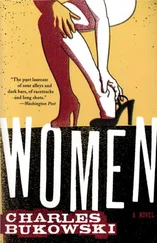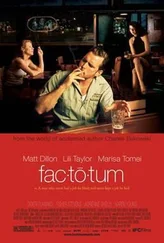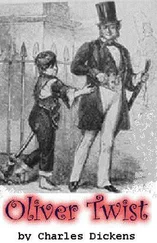It took some time, but, muddling through the thickest parts of her Percocet haze, she realized that the clear plastic tube was new, and this catheter was different, a new device had been placed in her body, but in the exact location as the one in New Hampshire.
“This one hurts more,” Alice mumbled. “Lots more.”
—
She still wasn’t coherent when the familiar voice nagged, through her fugue, coming from some outpost: They think they might not have used enough morphine. Tilda, bless her. Wearing one of those infernal masks and a pair of gloves that would be de rigueur for as long as Alice was stuck here. Only something didn’t make sense: Alice was accustomed to seeing the minty green accoutrements of New Hampshire. Tilda’s mask was the soft yellow of light filtered through a picture window on a lazy morning— aeons more pleasing. Alice did not understand how Tilda had gotten to the hospital so fast — somehow she’d made it up to the Granite State before they’d even gotten off the phone, Alice terrified, sharing the news in a blubbering, hysterical conversation.
The deep part of another evening: Oliver had been snuggled next to her in the bed, on a break from watching whatever movie he’d rented from some video place near campus. He’d wanted to know if they’d get to watch the little scrap of mask go brown on Tilda’s face.
Alice had smiled, blown a parched kiss.
More of her surroundings were recognizably mundane: intravenous glass bottles and plastic expanding fluid bags hanging above her, all of them connected to a large aluminum tree and a robotic battery pack; that orange plastic bin by the room’s entrance, specifically there for needles and radioactive trash; Alice’s patient folder open on a tan linoleum counter. Tilda sat in a cushioned seat beside her. Directly across from them, a wall of windows ran the length of the room. What was unexpected: about five yards away on Alice’s right side, a mud-green curtain acted as a separating wall. From behind the curtain came the spreading applause of a studio audience, loud enough to shatter eardrums.
Tilda flipped open a notebook. While Alice was unconscious, she’d taken notes. Not much, she said. Then she let Alice get acclimated to the land of the living, poured and handed her some water, gave her some ice chips. And only then, not wanting to leave out any last detail, did Tilda unpack her list, anything that might be moderately worthwhile: that Dr. Eisenstatt apparently had been detained by some emergency, but was still hoping to visit this afternoon; that the sheets and pillowcases were indeed hypoallergenic, the nurse had double-checked. Also, Alice was scheduled for tests today—“an EKG, an echocardiogram to make sure your heart’s okay, um, a CAT scan.” Oh, pills. Alice was supposed to take her pills: the little red one, that was an antifungal, and the white one, right, ay-psych-lo-veer, that was an antiviral, which meant no STDs, which meant Tilda probably needed “to grab a few for myself.”
They enjoyed one another’s laughter, a nice break, before Tilda continued. The pills: Alice was overdue to take the bunch on the counter in a plastic cup. Alice recognized the third one — a yellow horse-looking number of thickly packed potassium. In New Hampshire she’d been assured it would help with digestion. “Only my diarrhea hit, and every time, that huge pill passed right out of the other end.”
Tilda called it a koan worthy of the Buddha: How does one digest a pill for diarrhea if the diarrhea forces the pill through you before it can be digested? Alice was still enjoying the quandary when Tilda chugged forward again, this time to the little old woman on the other side of the curtain. Mrs. Woo. “She’s pretty much trapped in bed. They’ve got a tube in her throat,” Tilda said. Whenever any of the nurses came to talk to Mrs. Woo, they talked slowly and loudly, Tilda could not believe how bad, patronizing beyond words. Mrs. Woo had two full-grown grandchildren, and they came and went from the room at will, according to Tilda, apparently unable to speak English, but nevertheless possessing quite an endearing game show fetish, along with a preternatural aversion to turning off their television set.
“I asked about a private room. The nurse told me you could contact your insurance and see if they want to pay the extra fee. Five hundred and fifty more a night.” Tilda snorted. “I can call if you want?”
Glowing appreciation in the direction of her friend, Alice wished she was clever enough, that her mind was working well enough, for a proper counter. She wished she could keep this banter going. Then she recognized a sound — that beeping. She’d hoped she was done with it.
Congruent red light flashed from the top of the battery apparatus. Feeling around for the intercom system, Alice told the floor operator, “My IV’s beeping.”
In the window on the opposite wall, blankets of snow were coming down with speed and violence, falling so fast and hard that it was difficult to see the building just outside the window — a structure from some other century, stone and bricks worn down by time and the elements. She could barely recognize decorative flourishes on the marble window molding, a dancing cherub, its carved, curving belly. Fresh snow had accumulated into a thick pile on the ledge. It all looked close enough that if a person had a ladder, she might finagle it out the window, fight through the blizzard, and reach that other floor. She just might make her escape.
The Best of What Life’s Supposed to Be About
HIS COUSIN’S WIFE had sworn she would be at the apartment by eleven, at the absolute latest. Reliable, for the most part. Her fervor to help sure was genuine. Yet the absolute latest had come and gone, and still there was no word. Most likely she was stuck: in transit, on a subway, in a cab jammed in traffic. Jonathan also had stopped answering his phone, meaning he hadn’t heard anything, either, or was in a meeting, or had nothing new to say, just didn’t feel like answering.
Oliver lay in bed, feeding the kid a bottle, rocking her lightly, singing to her just a bit. Doe was overtired, wanting Mommy, not happy but responding anyway, moving less, getting quieter, one more stage closer to sleep. Oliver slowed his rocking. Being with the baby was fascinating. It was involving, necessary, rewarding, all the good shit that Alice — and every other woman he knew — had promised when she was pregnant and he’d been freaking out. Only there came that point; you reached a ceiling to all the Suzy Creamcheese homemaker blessing bullshit. Oliver could be making calls, like maybe to figure out how to save his goddamn wife’s life. Just where the fuck his cousin’s wife was, Oliver wanted to know.
Instead of the phone, he heard a muted clacking. Carrying from the loft’s work area: terminal keyboards, that itch that he could not reach. His programmers, for sure, were keeping it down as much as they could, they were trying to be respectful, but Oliver could still hear them. And there you had it: his family, his old life, his company, the camaraderie of friends, and the mental involvement of a challenge, all of it was yards away, on the other side of a plasterboard wall. And whenever it seemed like he could join them, when the kid seemed ready to drop, or had passed into slumber, just when Oliver started disentangling himself, Doe. What looked like a tremor. A spasm. Rousing. Again reattaching her little arms around Oliver’s neck. Clinging that much tighter.
Those first fleeting moments: his newly born daughter had been resting on his chest. Oliver told himself that, in the years ahead, he’d be looking back at these moments, trying to remember the soft warm exhalations of Doe’s little lungs on his face right now, the way her little fingernails were digging into his jugular.
Читать дальше











